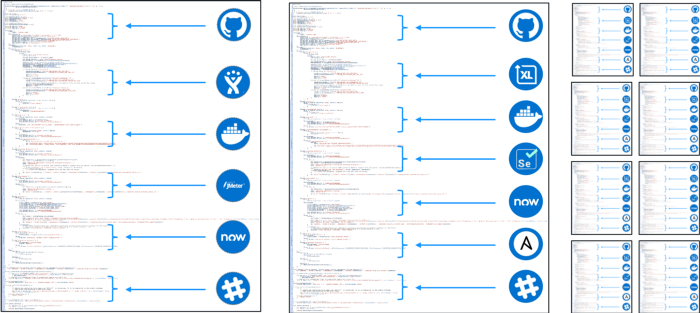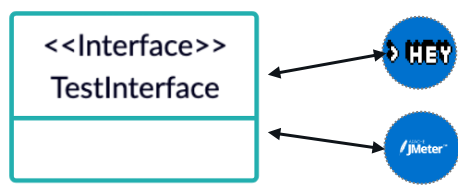Originally posted on Medium by community member, Andreas Grimmer
Continuous Delivery (CD) and Runbook Automation are standard means to deploy, operate and manage software artifacts across the software life cycle. Based on our analysis of many delivery pipeline implementations, we have seen that on average seven or more tools are included in these processes, e.g., version control, build management, issue tracking, testing, monitoring, deployment automation, artifact management, incident management, or team communication. Most often, these tools are “glued together” using custom, ad-hoc integrations in order to form a full end-to-end workflow. Unfortunately, these custom ad-hoc tool integrations also exist in Runbook Automation processes.

Problem: Point-to-Point Integrations are Hard to Scale and Maintain
Not only is this approach error-prone but maintenance and troubleshooting of these integrations in all its permutations is time-intensive too. There are several factors that prevent organizations from scaling this across multiple teams:
- Number of tools: Although the great availability of different tools always allows having the appropriate tool in place, the numberof required integrations explodes.
- Tight coupling: The tool integrations are usually implemented within the pipeline, which results in a tight coupling between the pipeline and the tool.
- Copy-paste pipeline programming: A common approach we are frequently seeing is that a pipeline with a working tool integration is often used as a starting point for new pipelines. If now the API of a used tool changes, all pipelines have to catch up to stay compatible and to prevent vulnerabilities.
Let’s imagine an organization with hundreds of copy-paste pipelines, which all contain a hard-coded piece of code for triggering Hey load tests. Now this organization would like to switch from Hey to JMeter. Therefore, they would have to change all their pipelines. This is clearly not efficient!
Solution: Providing Standardized Interoperability Interfaces
In order to solve these challenges, we propose introducing interoperability interfaces, which allow abstract tooling in CD and Runbook Automation processes. These interfaces should trigger operations in a tool-agnostic way.
For example, a test interface could abstract different testing tools. This interface can then be used within a pipeline to trigger a test without knowing which tool is executing the actual test in the background.

These interoperability interfaces are important and this is confirmed by the fact that the Continuous Delivery Foundation has implemented a dedicated working group on Interoperability, as well as the open-source project Eiffel, which provides an event-based protocol enabling a technology-agnostic communication especially for Continuous Integration tasks.
Use Events as Interoperability Interfaces
By implementing these interoperability interfaces, we define a standardized set of events. These events are based on CloudEvents and allow us to describe event data in a common way.
The first goal of our standardization efforts is to define a common set of CD and runbook automation operations. We identified the following common operations (please let us know if we are missing important operations!):
- Operations in CD processes: deployment, test, evaluation, release, rollback
- Operations in Runbook Automation processes: problem analysis, execution of the remediation action, evaluation, and escalation/resolution notification
For each of these operations, an interface is required, which abstracts the tooling executing the operation. When using events, each interface can be modeled as a dedicated event type.
The second goal is to standardize the data within the event, which is needed by the tools in order to trigger the respective operation. For example, a deployment tool would need the information of the artifact to be deployed in the event. Therefore, the event can either contain the required resources (e.g. a Helm chart for k8s) or a URI to these resources.
We already defined a first set of events https://github.com/keptn/spec, which is specifically designed for Keptn — an open-source project implementing a control plane for continuous delivery and automated operations. We know that these events are currently too tailored for Keptn and single tools. So, please
Let us Work Together on Standardizing Interoperability Interfaces
In order to work on a standardized set of events, we would like to ask you to join us in Keptn Slack.
We can use the #keptn-spec channel in order to work on standardizing interoperability interfaces, which eventually are directly interpreted by tools and will make custom tool integrations obsolete!